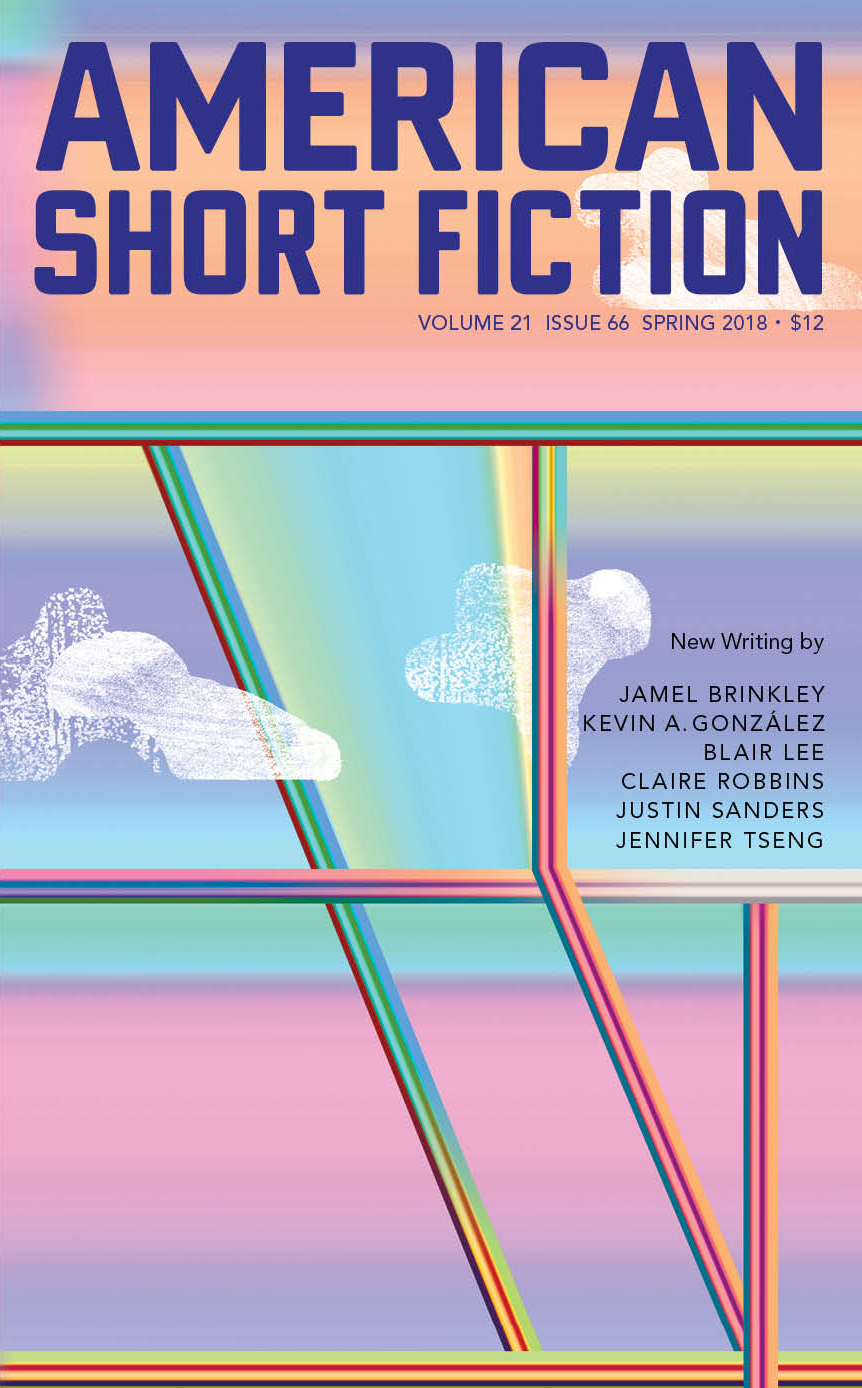Claire Robbins, “Arms Out” (American Short Fiction 66)
The
Spring 2018 edition of American Short
Fiction just came out, and it contains the winner of the American Short(er)
Fiction contest, judged by Justin Torres: Claire
Robbins’s “Arms Out.”
It’s a terrific and
terrorizing story. Read it while you’re sinking your teeth into something sweet,
to balance out the effect. Here’s the beginning, which sets the stage and the
tone for the entire two-and-a-half dizzying pages of the piece:
“Leah and Abbie go into the
woods and pretend to be boys all afternoon. Later, Abbie will go to college for
three years before she gets pregnant with her first son, while Leah will get
pregnant with a daughter at fifteen. They build a bridge by dragging fallen
tree trunks over the stream and then cross, arms out for balance” (p. 73).
Snippets of the future are
interwoven into the story of Leah and Abbie: they will find pictures of tied-up
naked women in the forest, they will lose their younger sister for two days in
a cornfield, their pet rabbit will die of dehydration, a truck driver whose mirror
they hit with a stone will fracture his spinal column, they will forget much of
what they lived that day, they will turn into mothers and have discussions with
boyfriends.
This is not, of course, a
sane way to live. If we knew everything that lurked ahead—five days, five years,
fifteen years ahead—would we even take another step? Tragic and joyful moments
are woven into the places and people we meet, something that “Arms Out” portrays
so well, while oblivion of the specifics of our tragedies and joys keeps us
going.
I haven’t come to fully appreciate
the title. The phrase “arms out” appears once in the story: “They build a
bridge by dragging fallen tree trunks over the stream and then cross, arms out
for balance” (p. 73). The phrase captures well the sense of keeping yourself
steady while you walk across the abyss, but is that all? The phrase is
suggestive of other meanings: for instance, “arms” (in the sense of weapons)
are out, so that people are defenseless in the battles they face in life;
alternatively, the arms are “out,” in the sense that they are ready for combat,
and so must people be, with so much chaos waiting around the bend. Even if I’m
not thrilled with the title, I like that it keeps feeding me new possibilities
as I dig in further.
“Arms Out” reminded me of “The
Gun,” by Mark Haddon, a piece I reviewed
a few years ago—but “Arms Out” delivers a much more forceful blow. It’s a
story that deserved its prize.

Comments
Post a Comment